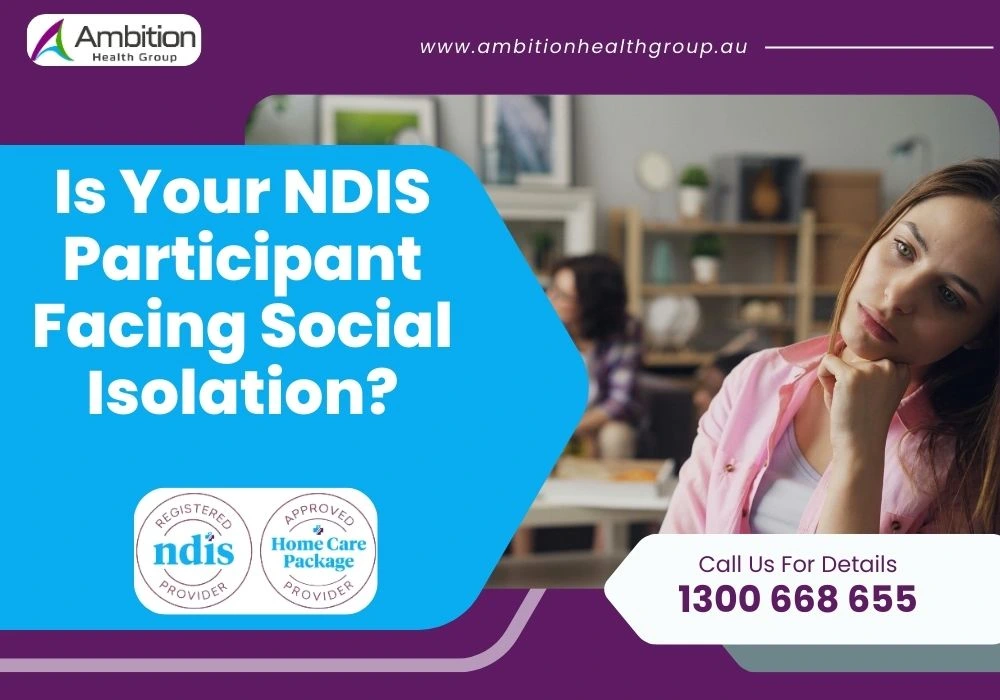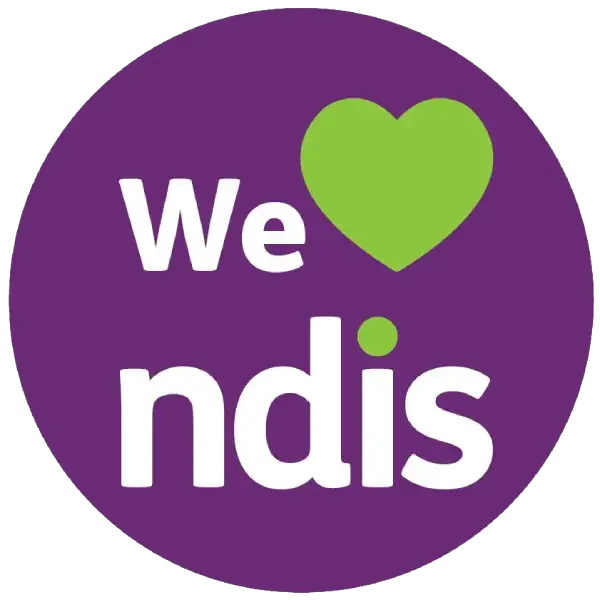Enquire about our SIL vacancies
What is Social Isolation?
Social isolation refers to the state of being disconnected or excluded from social relationships and community interactions. It goes beyond mere physical loneliness; it can also involve emotional and psychological distress due to a lack of meaningful connections with others. Social isolation can affect individuals of all ages, but for people with disabilities, it can be a persistent and complex issue. People with disabilities often have difficulty participating in social activities, accessing community services, or developing strong social networks. This isolation can lead to feelings of loneliness, depression, anxiety, and low self-esteem. It’s crucial to understand the signs of social isolation in NDIS participants and take steps to address it.Why Is Social Isolation More Common Among NDIS Participants?
Social isolation is a widespread issue for people with disabilities, and there are several factors contributing to this challenge:Mobility and Accessibility Issues
For many people with physical disabilities, getting out into the community and engaging in social activities can be a struggle. Accessibility barriers, such as lack of wheelchair ramps, transportation issues, or physical limitations, can prevent NDIS participants from accessing events or even visiting family and friends.Communication Barriers
Participants with intellectual disabilities, hearing or speech impairments, or autism may find it harder to communicate effectively. This can make forming social connections difficult, leading to feelings of frustration and exclusion.Lack of Support and Resources
Many NDIS participants may not have access to adequate support systems. Family and caregivers may be stretched thin or may not have the resources to help with social activities. Lack of social services or community programs catering to people with disabilities can further isolate them.Stigma and Discrimination
Unfortunately, people with disabilities sometimes face stigma or discrimination, both in social situations and in the broader community. These negative attitudes can lead to exclusion, making it harder for NDIS participants to feel welcome or accepted in social settings.Mental Health Challenges
The emotional toll of living with a disability can contribute to mental health struggles. NDIS participants dealing with depression, anxiety, or low self-esteem may withdraw further from social interactions, creating a cycle of isolation that is difficult to break.Signs of Social Isolation in NDIS Participants
It’s important to recognize the signs of social isolation in NDIS participants. Some common indicators include:- Avoidance of Social Situations: If the participant is regularly declining invitations or avoids group activities, it may be a sign of isolation.
- Emotional Withdrawal: Increased irritability, sadness, or a noticeable lack of interest in hobbies or socializing could indicate that they’re feeling isolated.
- Decline in Mental or Physical Health: Isolation can lead to a range of health issues, including depression, anxiety, or a decline in physical health due to lack of engagement or exercise.
- Difficulty Connecting with Others: NDIS participants who struggle to initiate or maintain conversations, or who seem to have no social networks, may be facing isolation.
- Increased Use of Technology: While technology can be a great tool for communication, excessive time spent online or gaming may indicate an avoidance of in-person social interaction.
How to Help an NDIS Participant Overcome Social Isolation?
There are several ways to support an NDIS participant in overcoming social isolation. Some strategies can be implemented by caregivers, while others may require the assistance of an NDIS provider. Here are a few approaches:Encourage Social Participation
Helping the participant engage in social activities is essential. Encourage them to take part in community events, sports, or recreational activities. Look for events or programs designed specifically for people with disabilities, such as inclusive sports leagues, art classes, or social clubs. The NDIS may fund social participation activities, such as accessible transport or assistance with joining group activities.Provide Social Skills Support
For participants who struggle with communication, offering support to build social skills can be a valuable step. This could involve working with a speech therapist, attending social skills workshops, or using assistive technologies. Teaching someone how to start and maintain conversations or navigate social cues can help them feel more comfortable engaging with others.Use Technology for Social Connection
While technology should not replace in-person interactions, it can be a valuable tool to maintain connections with friends and family. Video calls, online games, social media, or virtual events can provide opportunities to interact with others and reduce feelings of loneliness. Encouraging NDIS participants to join online communities or support groups can also help them connect with others who understand their experiences.Access NDIS-funded Supports
The NDIS provides a range of supports to help participants reduce social isolation. This could include:- Community Participation: The NDIS can fund programs that encourage social participation and help participants engage in their community.
- Capacity Building: The NDIS may provide funding for programs that build an individual’s skills to participate in social or community activities.
- Therapeutic Supports: Therapies like counseling or occupational therapy can help address emotional barriers to socializing, such as anxiety, depression, or self-esteem issues.
Foster Family and Peer Support Networks
Family and friends play a crucial role in combating social isolation. Encourage family members to spend more time with the participant, engage in activities together, or help them get out into the community. You can also help connect the participant with peer groups—whether online or in-person—where they can meet others with similar experiences.Support Mental Health
Mental health challenges often accompany social isolation. Ensure the participant has access to the necessary mental health services, whether through the NDIS or outside providers. Counseling or therapy can help them address underlying emotional issues, boost their self-esteem, and develop strategies for connecting with others.Promote Physical Activity
Physical activity not only improves overall health but can also promote social interaction. Encourage the participant to take part in accessible fitness classes, yoga, swimming, or group walks. Many local community centers and organizations offer adaptive physical activity programs for people with disabilities, which can provide a fun and supportive environment for socializing.Create a Safe and Inclusive Environment
Lastly, creating a welcoming and inclusive environment is key to overcoming isolation. Encourage the participant to be part of activities where they feel accepted, whether that’s with peers, family, or other individuals who understand and respect their challenges. Creating an environment where they feel comfortable and supported can go a long way in reducing social isolation.Conclusion
Social isolation is a serious issue that can have a significant impact on the lives of NDIS participants. However, with the right support and interventions, it is possible to help individuals overcome isolation and lead fulfilling, socially connected lives. Encouraging participation in social activities, providing mental health support, and leveraging NDIS-funded services are key strategies in helping NDIS participants break free from isolation.
If you’re supporting someone who is facing social isolation, remember that small steps can lead to big changes. By offering understanding, compassion, and the right tools, you can help NDIS participants build meaningful relationships and lead more connected, empowered lives.
For more information on how the NDIS can assist in addressing social isolation, or if you need help accessing the right supports, Ambition Health Group is here to help. Together, we can help reduce social isolation and improve the well-being of NDIS participants. Reach out to us today for personalised support and guidance.
Recent Posts
Top Rated Services
Get A Quick Quote Now
Enquire about our SDA vacancies
Enquiry Now
Consult Our Care Experts
Grab Your Free Consultation Today!
Or give us a call to speak to someone now
1300 668 655









